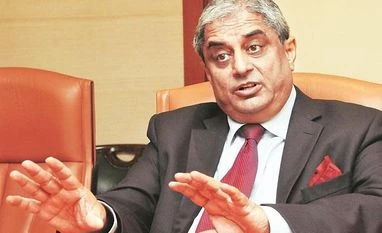Aditya Puri, chief executive of the country’s largest private sector lender HDFC Bank, said on Monday the central bank needed to take immediate measures like policy repo rate cut and easing of asset quality norms to cushion shocks in the wake of the spread of coronavirus.
“We need to look at non-traditional rate cut in the repo rate to ensure yields are maintained properly and ensure there is enough liquidity. We have to clearly come out with forbearance across the length and breadth because the cash flow of almost all companies will be affected if we have the lockdown,” Puri said.
The Reserve Bank of India (RBI) doesn’t have a choice but to provide some relaxation on the asset classification norms, he said. The RBI extended priority sector classification for bank loans to NBFCs for on-lending for FY21. RBI said existing loans disbursed under the on-lending model would continue to be classified under priority sector till the date of repayment/maturity.
He said: “We have to make sure we spend enough for the health care sector and put in as much of a stimulus as we can, (only) then we live to fight another day. This is more of a biological than a financial crisis. So, the first thing we need to focus on is to solve the health crisis and, fundamentally, the lockdown is an excellent idea because we need to flatten the curve. If we don’t see the curve flattening at the end of the lockdown, we will probably need to extend the lockdown.”
His bank may see a muted growth in the fourth quarter (March) but the bank has surplus liquidity of $5 billion. This will provide a cushion to tide over the difficult times. HDFC Bank has also tightened in its lending norms for retail loans.
He ruled out any emergency credit line to customers while being open to support worthy borrowers in the hard times. Unlike State Bank of India (SBI), which gets capital from the government, we need to go to the market to raise capital. Therefore, we cannot do a business that is not profitable, Puri said on why it would not be possible to extend emergency working capital loans like SBI.
Some days ago, SBI, the country’s largest lender, opened an emergency credit line to meet any liquidity mismatch for its borrowers. SBI would charge 7.25 per cent interest rate on the emergency credit line.
Downplaying the fears regarding its unsecured consumer loan portfolio, Puri said: “Of the 16 per cent, 6 per cent is cards and 10 per cent is personal loans. In the personal segment, 75 per cent is to the salaried class of top-tier companies and, consequently, there is no reason to be worried about that portfolio.”
The bank has well diversified SME book across sectors with non-performing loans of about 2 per cent and it is a very granular portfolio. “80 per cent of our SME loans have collaterals and 85 per cent of them are self-funded, that is, customers have deposits with the bank. We cater to niche SMEs and mostly the top three SMEs, based on product profile, in a region. Our average ticket size for SME loans in Rs 1.2 crore,” Puri said.
Moreover, as much as 80 per cent of the bank’s wholesale lending is to AA and above and the exposure is spread over 150 sectors.
Puri also said: "After every crisis, the world changes, I think this has an effect on globalisation. There'll be an effect on more digitisation. There will be effects on making sure there is not so much income disparity. One, oil at 26 is a real bonanza. The drop in prices of commodities is a phenomenal bonanza. The fact that we are not so integrated into the global economy cushions us. If we can solve this health issue, when we come out, we will be one of the stars.”
In order to ease the pressure on customers, banks have taken a slew of measures. Axis Bank on Monday waived off charges for savings account, current account, and prepaid card customers (wherever applicable) towards online IMPS and ATM financial and non-financial transactions for the period of March 23- 31.
Axis Bank has set aside Rs 100 crore to support customers, employees, vendors, government agencies and the community at large towards curbing the spread of coronavirus. It did not specify if it was considering any credit line for its borrowers impacted by virus spread and lockdown. Federal Bank has also said daily cash withdrawal limit on debit cards has been enhanced to Rs 1 lakh and their digital banking services will be functional round the clock.
Priority sector tag for bank loans to NBFCs extended
The RBI has extended the priority sector classification for bank loans to NBFCs for on-lending for FY21. The classification benefit was to be available till March 31. This is part of steps to support financial sector entities to deal with slowdown and aftermath of COVID-19.
Unlock 30+ premium stories daily hand-picked by our editors, across devices on browser and app.
Pick your 5 favourite companies, get a daily email with all news updates on them.
Full access to our intuitive epaper - clip, save, share articles from any device; newspaper archives from 2006.
Preferential invites to Business Standard events.
Curated newsletters on markets, personal finance, policy & politics, start-ups, technology, and more.
)